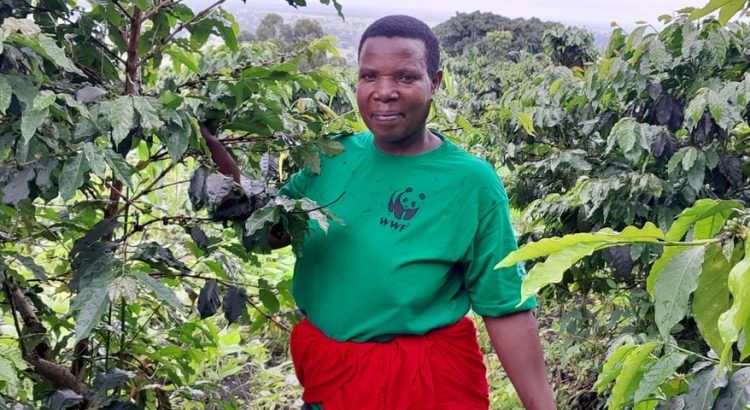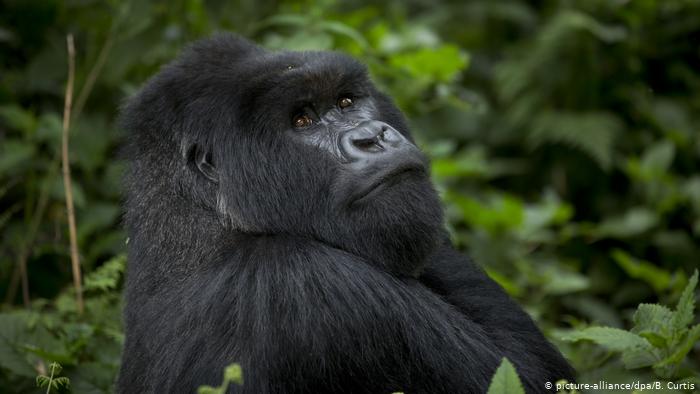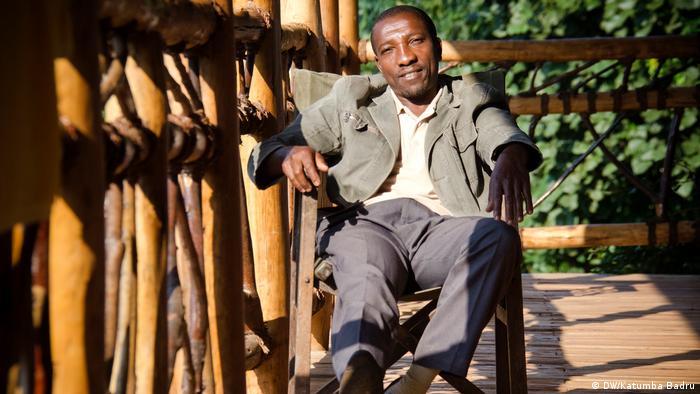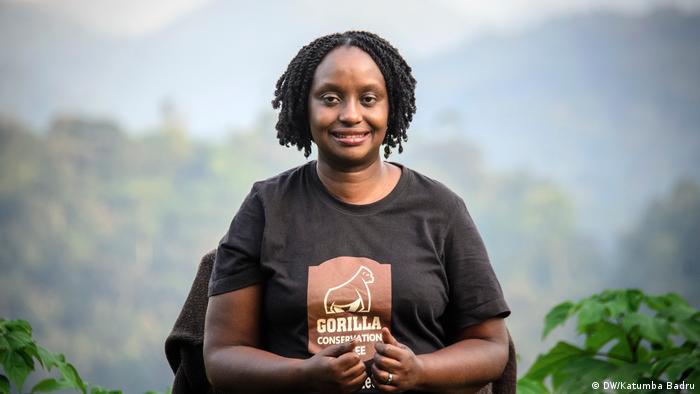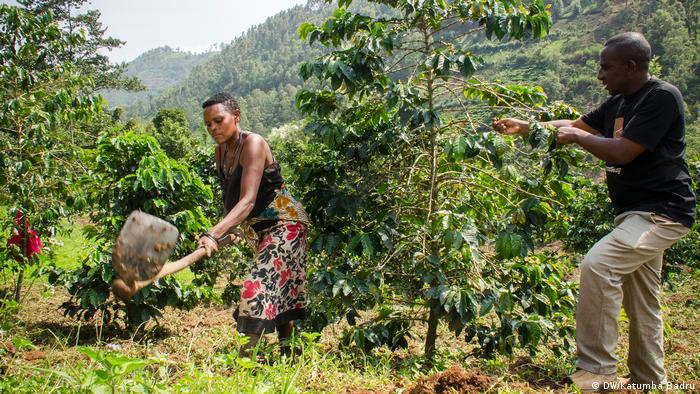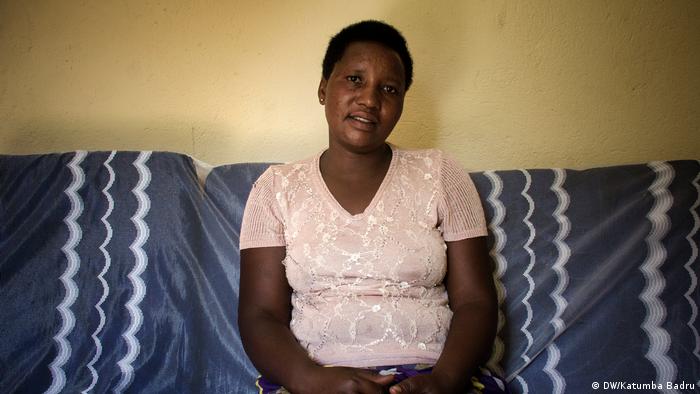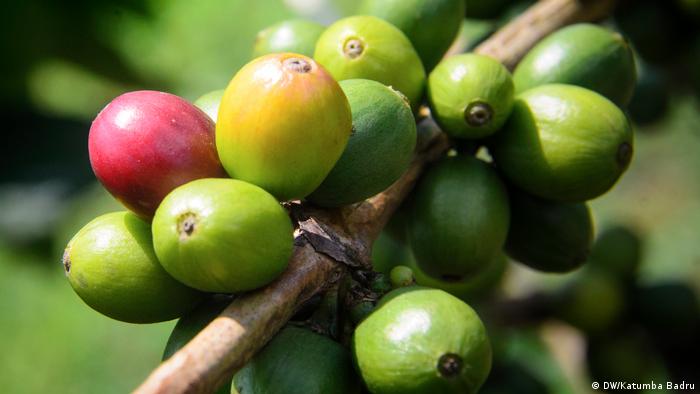SOURCE: MONITOR
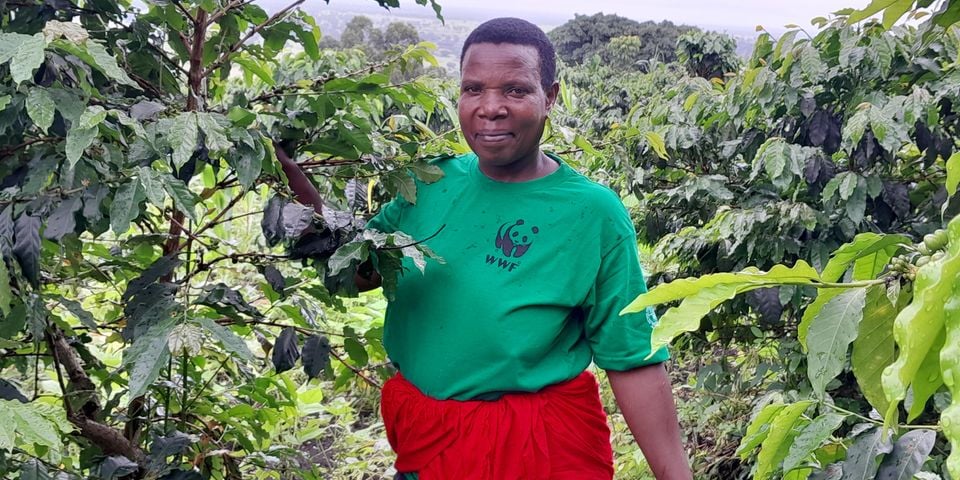
What you need to know:
-
Reformed poachers, who are now farmers are supported through training in sustainable coffee farming and processing.
-
This improves the coffee quality, increases production and protects wildlife habitat.
Growing human populations in communities neighbouring protected areas have continued to become a major threat to the rising number of wildlife populations across Uganda. The continued habitat loss on the side of protected areas frustrate wildlife conservation efforts.
Human activities such as agriculture and industrialisation have forced hundreds of animal species into migration and facilitated human-wildlife conflict because activities exert more pressure on natural resources, which serve as natural habitats for animals.
In the past, people living around Queen Elizabeth National Park and Bwindi Impenetrable National Park would go into the parks for poaching and timber cutting as sources of food and livelihood.
These daily struggles caused mayhem because many members of the public lost their lives after they were killed by law enforcement teams and animals. In Rubirizi district, a number of family heads died guarding their crops against elephant raids
“Most of us are widows because our husbands were shot dead by rangers. They were found hunting in the park. Elephants destroyed our gardens and we felt like killing them in order to compensate ourselves with ivory. But we were aware that this was illegal,” Birungi Mwanje, a member of Kataara Women’s Poverty Alleviation Group (KWPAG), a group running projects that minimise environmental impacts on Queen Elizabeth National Park shares.
Coffee growing
To address this conservation challenge, communities in south western Uganda, have been organised into Arabica coffee growing and value addition groups. The two strands of growing and value addition have proven to be alternative sources of livelihood.
According to Moses Agaba, the group coordinator of KWPAG, women have since actively participated in growing of coffee and value addition.
“Most of these are widows whose husbands died in the park. They used to sell meat obtained from the park as a source of livelihood. Today, they are now busy processing coffee and they are earning a living. A woman who is busy roasting coffee cannot send her son to the park for meat,” says Agaba.
The group known as Kataara Women’s Roasted Coffee Beans, collects red coffee berries from their own gardens and out growers, process it into roasted berries or powder and sell it to tourists or hotels, where they get more yields.
“From out growers, we buy one basin of red coffee at Shs2,000 and after processing it, a basin goes for up to Shs 374,429 and to us, this is a profitable business. We cannot go back to the park,” women coffee farmers say.
During the peak season, the group fetches up to Shs2 to 3 million per month, whereas during off season, they get Shs600,000-Shs800,000. Immaculate Nyangoma Tumwebaze, the group chairperson, says they chose coffee growing after they found out that coffee cannot be eaten by elephants. Aside from coffee farming, do they do other activities such as turning elephant dung into paper and art objects, which they sell to earn money. Coffee growing also helps the residents protect their soil from erosion
Supporting community tourism
When tourists visit the Kicwamba community, where KWPAG is located, they support community tourism by visiting coffee gardens, processing centres, where they pay to see value addition activities and also end up supporting different interventions that protect the park.
In Rubirizi District, coffee contributes 68-70 percent to the economy, according to Habib Kaparaga, the district secretary for finance and administration. Areas engaged in coffee growing include Kicwamba, Katerera, Ryeru, Kirugu and Kyabakara.
Bwindi Impenetrable Forest National Park, where 1,063 mountain gorillas live today, is surrounded by isolated and impoverished communities. In the past, due to their close proximity both inside and outside the national park, preventable infectious diseases would spread between humans, gorillas and livestock.
This along with habitat encroachment, poaching and economic instability threatened the existence of the mountain gorillas, until Dr Gladys Kalema-Zikusoka, the first Wildlife Veterinary Officer of the Uganda Wildlife Authority Conservation Through Public Health (CTPH) came and established Gorilla Conservation Coffee as a social enterprise for neighbouring communities.
CTPH promotes biodiversity conservation by enabling people, gorillas and other wildlife to coexist through improving their health and livelihoods in and around protected areas and wildlife rich habitats.
Need for livelihood
Dr Zikusoka discovered that coffee farmers in Kanungu District were not being given a fair price for their coffee and were struggling to survive, forcing them into national parks to meet their basic family needs, specifically food and fuel wood.
Gorilla Conservation Coffee pays a premium of Shs1,872 per kilogramme, above the market price, according to Edward Sekandi, the CTPH operations manager.
“These are mainly former poachers, now reformed. They are converted into coffee growing. It is an intensive, engaging and profitable activity that they no longer want to go back to the park,” says Sekandi.
GCC prevents residents from practicing deforestation for charcoal and rallies them into shade tree planting in their coffee gardens in order to mitigate the impacts of climate change.
Sekandi says farmers are encouraged to use organic manure in their coffee gardens instead of artificial inputs, which he says spoil the soil structure.
Reformed poachers, who are now great farmers are supported through training in sustainable coffee farming and processing. This helps them to improve the coffee quality, increase production yield and protect the endangered gorillas and their habitat.
“When you are tracking gorillas, you tour coffee farms. We buy coffee from farmers and sell it to traders, roasters and retailers and the donations from every bag sold, goes to the work of CTPH,” says Dr Zikusoka.
Markets
The coffee is 100 percent premium Arabica, which is selectively harvested for only red ripe cherries, handpicked, wet processed and dried under shade. This coffee is tested for quality at every level. The coffee is roasted and packed to quality standards.
Each cup has a unique aroma with hints of caramel, butter notes and almond, with a citrus taste and a sweet finish. The group’s first blend is named after Kanyonyi, the former lead silverback of the Mubare gorilla group, located in Bwindi Impenetrable National Park.
The coffee is majorly sold in the US, Canada, UK, New Zealand, France and South Africa. GCC makes a special effort to support women coffee farmers, helping to provide opportunities for economic empowerment, disrupt male financial dominance and break and stereotypes.
